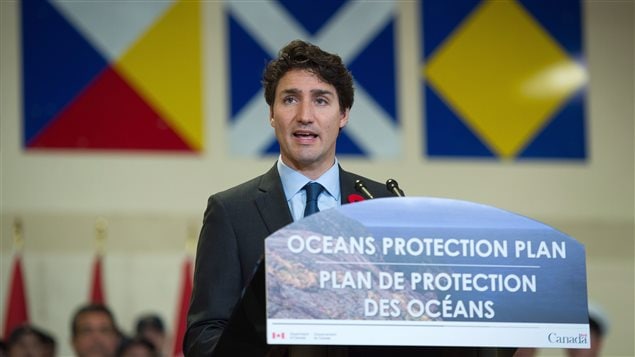The development of a clear Arctic policy direction by the Liberal government of Prime Minister Justin Trudeau in its first year in power was hobbled by the loss of a key cabinet member, says one of the most prominent Canadian experts on the Arctic.
The sudden resignation of Minister of Fisheries and Oceans and the Canadian Coast Guard Hunter Totoo at the end of May to seek treatment for addiction, was a major setback for the Trudeau government, said Michael Byers, Canada Research Chair in Global Politics and International Law at the University of British Columbia.
“The person who was essentially charged with a lot of Arctic issues all of a sudden was no longer in cabinet or even in the caucus,” Byers said in a recent interview.
(click to listen to the full interview with Michael Byers)
ListenNevertheless, the Liberal government’s recent announcement with regards to investing in Canada’s coastal capabilities in terms of enabling Coast Guard icebreakers to spend more time in the Arctic during the summer season, additional funding for operations, as well as pre-positioning search and rescue and oil spill response capabilities in northern communities is a good start, Byers said.
“There is no big announcement for the Arctic, there is no plan to replace all of our increasingly old icebreakers, for instance, there is no plan to build a deep-water port at Iqaluit to service the capital of Nunavut, there is no big spending item here,” Byers said. “But at least it’s a positive development to see at least some money going into improving key capabilities.”
Still, it’s not clear how much of the $1.5 billion ocean protection funding, announced by Trudeau in early November, will go to the Arctic.
“The announcement was very uninformative,” Byers said. “It did not provide any details on the allocation of funds apart from that overall number $1.5 billion spread over five years and spread over three coastlines.”
If one were to assume that the money will be divided equally between Canada’s Atlantic, Pacific and Arctic coasts, then it means each coast would get about $100 million a year, Byers said.
“The Arctic, of course, is an exceedingly difficult and expensive place in which to operate and that money could be spent very quickly,” he said.
Overall, the Liberal announcement is an incremental improvement and “better than nothing,” Byers said.
“To have the Coast Guard icebreakers in the Arctic for a few extra weeks, early in the summer season and later in the fall, will be an improvement, he said.
“To have some local search and rescue and oil spill response capability in small communities will definitely be an improvement.”
Looking forward to the coming year, the most immediate issue facing the Liberal government in the Arctic is helping the territorial governments of Nunavut, Northwest Territories and Yukon address multiple social crises, Byers said.
“The crisis in health, the crisis in housing, in education and others, because the poverty and the desperation that exists in many northern communities has enormous long-term costs in terms of not just economic costs but social costs, human costs, cultural costs,” he said. “The population of the Canadian North is relatively small although it would be expensive to resolve the housing crisis, to dramatically improve health, to work with real money to slow and stop the suicide crisis, it’s still possible for a federal government that was determined to deal with these issues to make a huge difference and to do so in a relatively short period of time.”







For reasons beyond our control, and for an undetermined period of time, our comment section is now closed. However, our social networks remain open to your contributions.